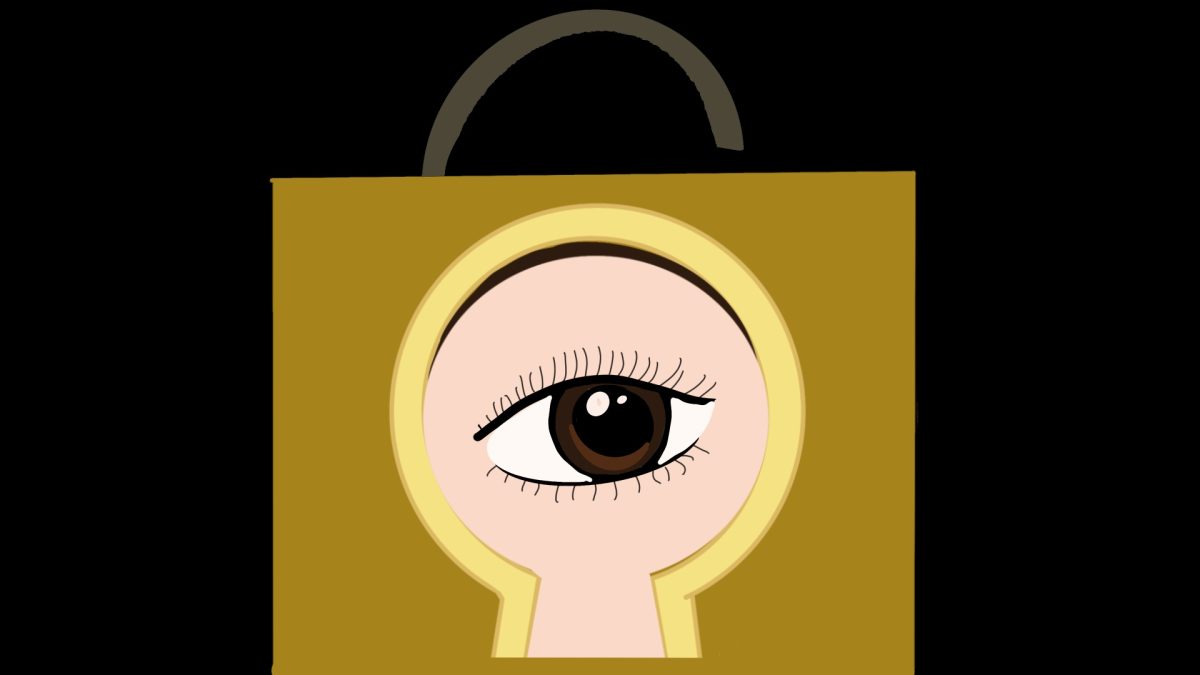I was walking up the main staircase on the way to my seventh hour after a very tiring Monday when I overheard a boy loudly telling his friends about how he got “his girl” to give him head at the party the previous weekend. I was disgusted. Hearing the details practically yelled for anyone to hear with a sense of pride attached to the words was sickening.
Private moments becoming public knowledge in a school of 1,600 students is the kind of drama in movies that ruins lives. Dramatic rumors about sexual activities often center around damaging someone’s reputation. Broadcasting intimate details with a romantic partner to friends and social media is far too normalized in teenage life. Publicizing your body through fashion trends also creates a negative and objectifying culture.
Talking about “what I did last night” is not something to announce for everyone to overhear, especially if the other person is not present. Going out with friends on a Friday night has changed from our parents’ high school experience of going to the movies and getting food to getting drunk and stupid. While parties like these have always existed, they have become far too normalized in this day and age.
Television shows such as “The Summer I Turned Pretty” and “Outer Banks” depict teenagers as young as 15 going to parties and having sex, making it seem like the “better” or “cooler” thing to do. Meanwhile, the actors playing these teenagers are much older than the age they are depicting, some being as old as 30. “Euphoria” for example is a show about teens between the ages of 16 and 18 that pictures these characters having sex, getting drunk and wearing clothes with little to no coverage. Older actors with more mature minds and bodies create media that glorifies this culture while portraying children half their age with not-yet-developed minds and bodies. These shows do not just push behaviors onto teenagers but also influence secular fashion trends.
Going shopping for a top that is not cropped, does not have a cut-out stomach or where the back is not transparent is incredibly difficult. Modest clothing is a choice and as someone who typically wears clothing with more coverage, I find it violating when boys look at certain parts of my body when I occasionally wear a lower-cut top. While wearing revealing clothing is not wrong, it is a personal decision that may feel forced by media tactics and societal norms.
Beyond clothing, discussing physical features in a degrading way has its own issues. Hearing my friends gossip behind people’s backs about how “ he could be hotter if…” or “if only he fixed this …” On the other side of that, overhearing boys talk about my friends or my body in ways that make us, already insecure in our growing teenage selves, feel like objects. Being seen as just a body or just a face by the people surrounding you feels objectifying and humiliating. I have been told a plethora of names and demeaning comments both while I was present and behind my back.
This behavior is unacceptable. The public scrutiny around looks, modesty and sexual activities is simply disgusting. As a society, we have more pressing concerns than seeming like the “coolest” person at a party. High school is a time of development, and putting yourself in a situation that could compromise your dignity or someone else’s is not the way to enter adulthood.




